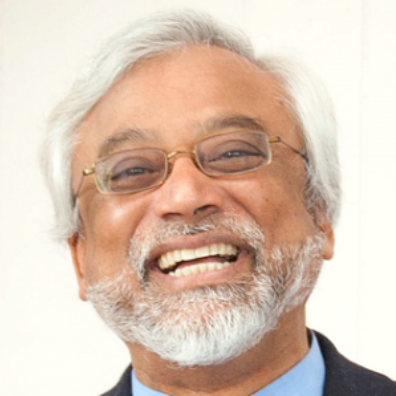Compassion for Self and Others
By Imam Jamal Rahman
 The Prophet Muhammad said that the heart of the Qur’an is rooted in the “Basmala,” the formula that opens virtually all of the one hundred fourteen chapters of the Holy Book: “In the name of Allah, Boundlessly Compassionate and Merciful.” When a Bedouin asked the Prophet how the Basmala could be bestowed upon him, the Prophet famously replied: "Have compassion on yourself, and on others, and the Basmala will be bestowed upon you.” These words of the Prophet Muhammad constitute the core of Islamic spirituality.
The Prophet Muhammad said that the heart of the Qur’an is rooted in the “Basmala,” the formula that opens virtually all of the one hundred fourteen chapters of the Holy Book: “In the name of Allah, Boundlessly Compassionate and Merciful.” When a Bedouin asked the Prophet how the Basmala could be bestowed upon him, the Prophet famously replied: "Have compassion on yourself, and on others, and the Basmala will be bestowed upon you.” These words of the Prophet Muhammad constitute the core of Islamic spirituality.
The Power of Compassion
How can one begin to explain the awe-inspiring power of mercy and gentleness? Teachers from various traditions ask us to observe nature’s closest metaphor to compassion: The element of water. There is nothing so soft and yielding as water, yet it is powerful enough to overcome the hardest stone. This soft element has the power to wash away continents. Water, like compassion, is necessary for life: “Wherever water falls, life flourishes,” says the 13th-century sage Rumi. The Earth was parched, says the Qur’an, but God sent down the waters of mercy and the Earth was “clothed in green.” (Qur’an 22:63) Likewise, the person who practices compassion is blessed with authentic strength, and at the same time blesses the world with life-affirming grace.
Compassion for Self
We are placed mysteriously on Earth in a state of confusion and bewilderment. In truth, we have no idea of who we are, where we come from, or where we are going. In the poet Rumi’s playful words, “We all arrive here a little tipsy.” In this confused state, we need to be gentle with ourselves. Our beings deserve to be touched with compassion every step of the way.
To grow compassion for ourselves, it is critical to embrace not only our ten thousand joys of life, but also our ten thousand sorrows of life. It is important to enfold our uncomfortable feelings with mercy and gentleness. The human ego tends to avoid, deny, and minimize feelings that make it feel threatened. Unpleasant feelings such as anger, sadness, and jealousy possess an edge only because we perceive them as something separate from ourselves. When we acknowledge them and enfold them with mercy and gentleness, we allow them to become healed and integrated. Carl Jung says that when, with courage and compassion, we kiss our inner demons, they turn into princes and princesses. Kahlil Gibran said, “The more that sorrow carves into our being, the more joy it can contain.” Sufis repeatedly remind us there is no need to run towards pain and suffering, just do not run away from them.
Forgiveness With Compassion for Self
We can truly forgive others only if, during the process, we practice compassion for ourselves by lovingly enfolding the difficult feelings that the situation arouses in us.
I once had a client who was desperately seeking spiritual techniques to forgive the man who had murdered her daughter. This was, she believed, the only way she could be freed from her burden of hate and pain. But the more she tried to forgive, the more angry she became. In fact, she began to develop physical illnesses. What was missing was compassion for herself: the compassionate need to honor her feelings of anger and suffering, the need to make sacred the difficult feelings, by embracing them with mercy and kindness. What she needed was not to push them down, but to bring them in, gently, lovingly, with mercy for herself. Using a spiritual practice called "Sacred Holding" she allowed herself, little by little, to embrace and nurture her painful feelings. She then experienced a remarkable healing. She was blessed with a sense of release, freedom, and unburdening, and her strange illnesses disappeared. This woman’s story demonstrates that we can truly forgive only if, during the process, we practice compassion for ourselves by lovingly enfolding the difficult feelings that arise in us.
Compassion for the Other
Over time, compassion for self creates an inner spaciousness that gives us the capacity to be compassionate with others, no matter how confrontational or adversarial he or she is. From the place of inner spaciousness, we are able to discern between behavior and being. We realize that we are confronting the antagonism, not the antagonist.
In Sufi literature there is a story about how a judge might behave while sentencing someone who has committed a terrible crime. One judge might proclaim the sentence with contempt and disdain for the criminal, eager in his heart to banish this “scum of the Earth” into oblivion. This judge does not differentiate between behavior and being. Another judge, one who has cultivated inner spaciousness, would render the same sentence — but with solemnity and respect for the offender’s soul. Out of compassion he makes sure that the offender is accorded human dignity and is not maltreated in prison. Maybe the judge even prays for the offender, sending light from his heart to the soul of the convicted person. So the same sentencing is carried out with two different energies. Is this a big deal? Absolutely! Compassion is an energy from the soul that has the power to shift heaven and Earth, both in our own hearts and in the hearts of those whose lives we touch.
May we take to heart the words of the Prophet Muhammad: “If compassion were a visible creation, nothing which Allah has created would be more beautiful than it.”
 Imam Jamal Rahman is a popular speaker on Islam, Sufi spirituality, and interfaith relations. Along with his Interfaith Amigos, he has been featured in the New York Times, and on CBS News, BBC, and various NPR programs. Jamal is co-founder and Muslim Sufi minister at Interfaith Community Sanctuary and adjunct faculty at Seattle University. He is a former co-host of Interfaith Talk Radio and travels nationally and internationally, presenting at retreats and workshops.
Imam Jamal Rahman is a popular speaker on Islam, Sufi spirituality, and interfaith relations. Along with his Interfaith Amigos, he has been featured in the New York Times, and on CBS News, BBC, and various NPR programs. Jamal is co-founder and Muslim Sufi minister at Interfaith Community Sanctuary and adjunct faculty at Seattle University. He is a former co-host of Interfaith Talk Radio and travels nationally and internationally, presenting at retreats and workshops.
He is the author of Sacred Laughter of the Sufis: Awakening the Soul with the Mullah’s Comic Teaching Stories and Other Islamic Wisdom... Spiritual Gems of Islam: Insights & Practices from the Qur’an... Hadith, Rumi & Muslim Teaching Stories to Enlighten the Heart & Mind... The Fragrance of Faith: The Enlightened Heart of Islam.
He is the co-author of Finding Peace Through Spiritual Practice: The Interfaith Amigos’ Guide to Personal, Social, and Environmental Healing. .. Religion Gone Astray: What We Found at the Heart of Interfaith. .. Getting to the Heart of Interfaith: The Eye-Opening, Hope-Filled Friendship of a Pastor, a Rabbi, and an Imam... and Out of Darkness into Light: Spiritual Guidance in the Quran with Reflections from Jewish and Christian Sources.
Jamal’s passion lies in interfaith community building. He remains rooted in his Islamic tradition and cultivates a "spaciousness" by being open to the beauty and wisdom of other faiths. By authentically and appreciatively understanding other paths, Jamal feels that he becomes a better Muslim and a more developed human being. This spaciousness is not about conversion but about completion.
Catalyst is produced by The Shift Network to feature inspiring stories and provide information to help shift consciousness and take practical action. To receive Catalyst twice a month, sign up here.
This article appears in: 2021 Catalyst, Issue 2: Mystics Summit



